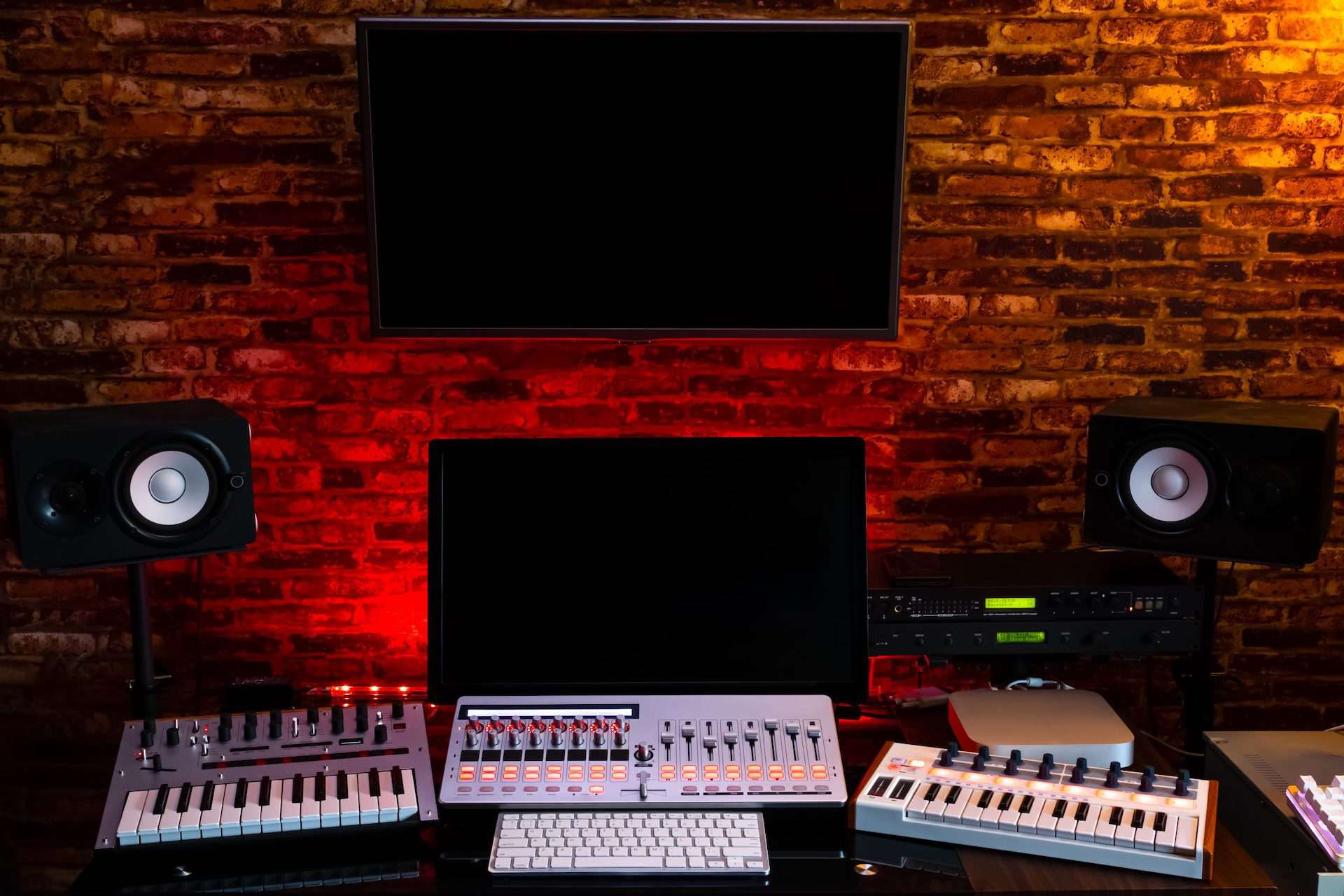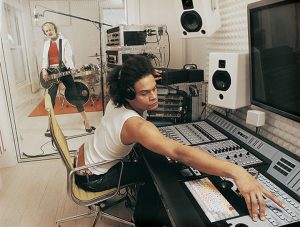Working as a music producer for the past 17 years, I’ve gone through most variations of home and professional recording studios: I produced from my bedroom, from a dedicated office in my apartment, and from the basement of my house before transitioning to a professional recording studio completely separate from where I live.
Each option was an important milestone in my career, and each option was good for what I was trying to achieve at that point in my producing career. So I thought it was time to share some of the pros and cons of each option and maybe provide some different angles from my own experience.
Aspiring producers used to chase gigs as busboys in big recording studios just to get close to the action—but those days are gone, and pretty much all of us start producing music with our laptop in the comfort of our own home.
When you’re just starting out as a music producer, I don’t see why you’d need more than a laptop, an audio interface, and a set of good headphones or monitors to start building up your production abilities.
After setting up your computer, you start producing. You’ve been mastering your DAW, you buy some plugins you heard about from friends or on online forums or YouTube videos, and you start to get the hang of being a music producer. After a while, you decide it’s time to put some of your beats out there for the world to hear, and you upload some of them online.
Maybe you feel it’s time to get a singer on one of your tracks and collaborate. In this phase, you can probably keep working from home, but when you start bringing singers on I believe it’s best to avoid working from your bedroom. If you have the ability to move into a separate room and acoustically treat that room—maybe upgrading your gear a bit along the way—that’s great.
One thing to remember: people listen with their eyes, which means they’ll judge you for the environment you produce or mix at. So as more and more collaborators and clients come through, you’ll want to make your environment look more professional and comfortable.
Now, I want to use this opportunity to differentiate music producers from mixing engineers, which I also discuss more in depth in one of my previous blogs.
As a mix engineer, working in the wrong acoustic environment doesn’t help you to improve, since mixing requires balanced acoustics and high-end gear for you to get an objective starting point about the track. So if you want to become a mix engineer, you probably want to work in an acoustically treated environment with good gear—and somewhere you can crank up the volume if you need to.
As a music producer, though, balancing your tracks correctly isn’t as important as when you’re mixing—it’s the creative aspect that matters—so there’s no reason to jump into renting or buying a studio, investing in acoustics, or buying high-end gear.
So back to you: you keep working on your productions, and by now you’ve already released a few tracks. People are starting to like your work, and more and more people online start following you. Friends of friends are hearing about you and want to collaborate. A friend of a friend said they want to pay you to produce for them, and you’ve sold a few beats online. You really start feeling comfortable with your production abilities.
I believe now’s the time to start taking yourself more seriously and start thinking about your future as a producer.
I remember moving to LA before building my studio. I was already an established producer in Israel, but not a lot of people knew me in LA, and I needed to rebuild my reputation. I set up a small studio at my home and started to bring clients. Talking to some of the same clients now about that period, they describe the experience as unpleasant; they simply weren’t comfortable getting an up-close picture of my personal life every time they wanted to make music.
Let’s face it: no one wants to start their recording session by going through your family’s living room, maybe meeting your mom or partner, maybe smelling the curried chicken your sister is making for dinner, maybe meeting your son when he goes out to pee… No one.
The hard truth is that working as a musician from your bedroom or home implies you don’t have the money to actually open your own studio—and I’d suggest that might even be true.
In one of my other blogs, I suggest musicians treat their music like a business, which means they should register their business and make a financial plan that includes branding, marketing, etc. Part of taking your music production seriously is understanding you have to eventually take that risk and open a legit professional place detached from your home. (And by the way, it can be part of your house, just not attached to it—as long as it’s completely separate with a separate restroom and entrance, it still counts as a professional recording studio.)
Would you go to a restaurant in someone’s bedroom? Or at someone’s apartment? Would you fix your car and leave it at a repair shop that doubles as someone’s home?
The same applies to recording artists. If you want your artists to feel comfortable, pay you, and believe in you, you should believe in yourself first and believe you’re worth it by investing your own money first.
But first, make sure you’re ready. Put the time and effort into gaining some online traction, making sure your releases are mixed and mastered at radio quality. It’s only when you have the ability to professionally produce and have some credits and online presence that you should consider getting a separate place to work from.
Raz





